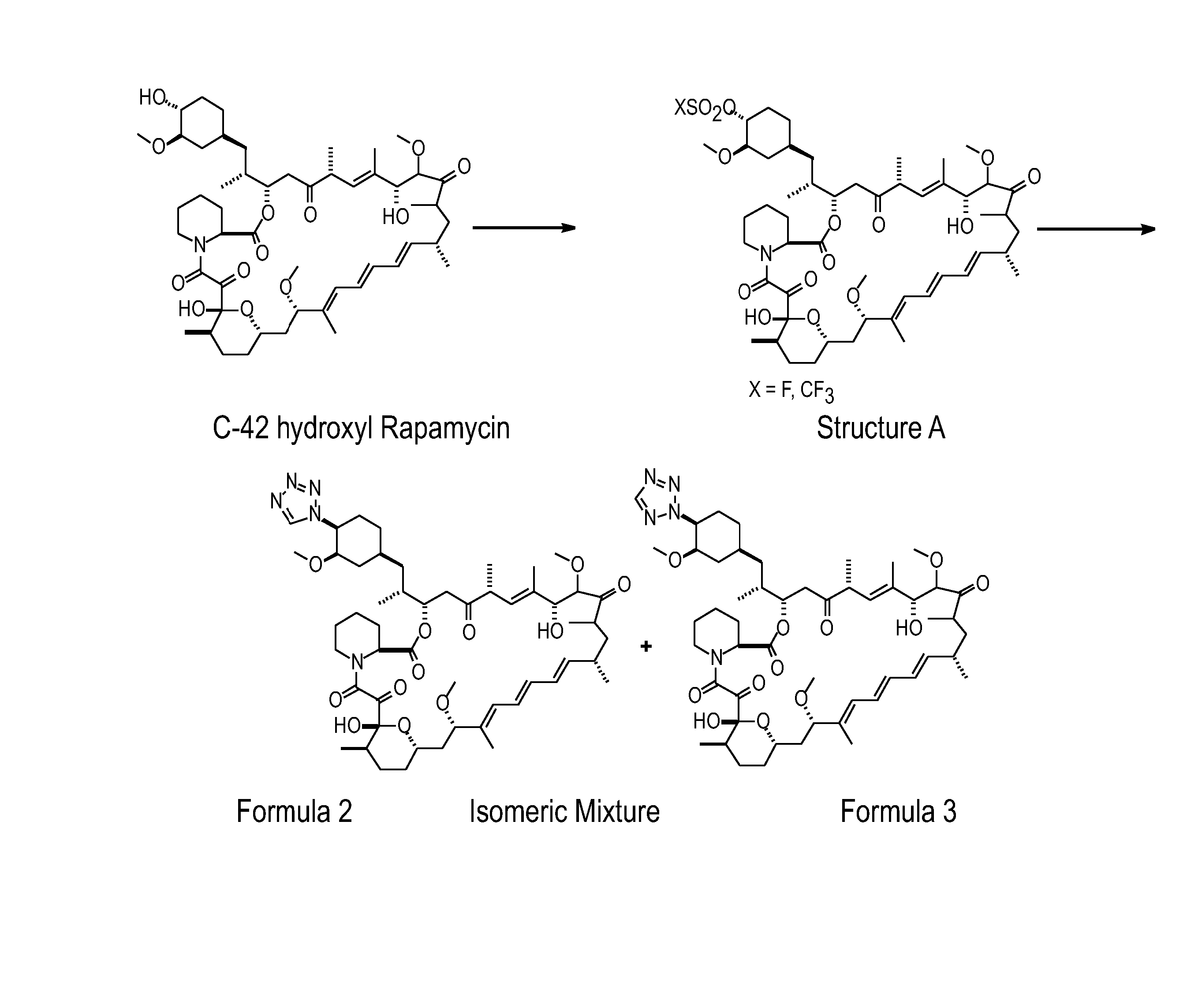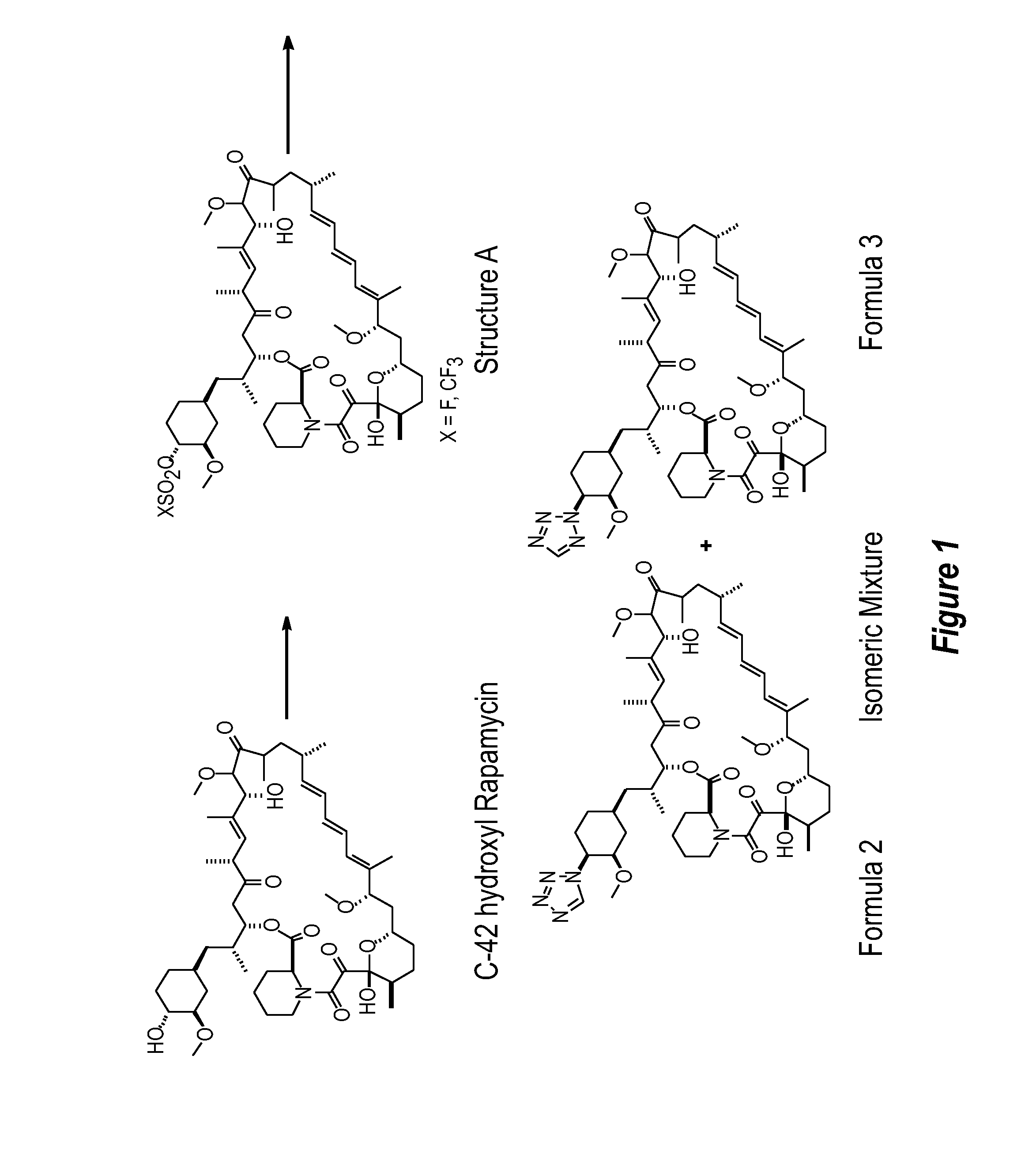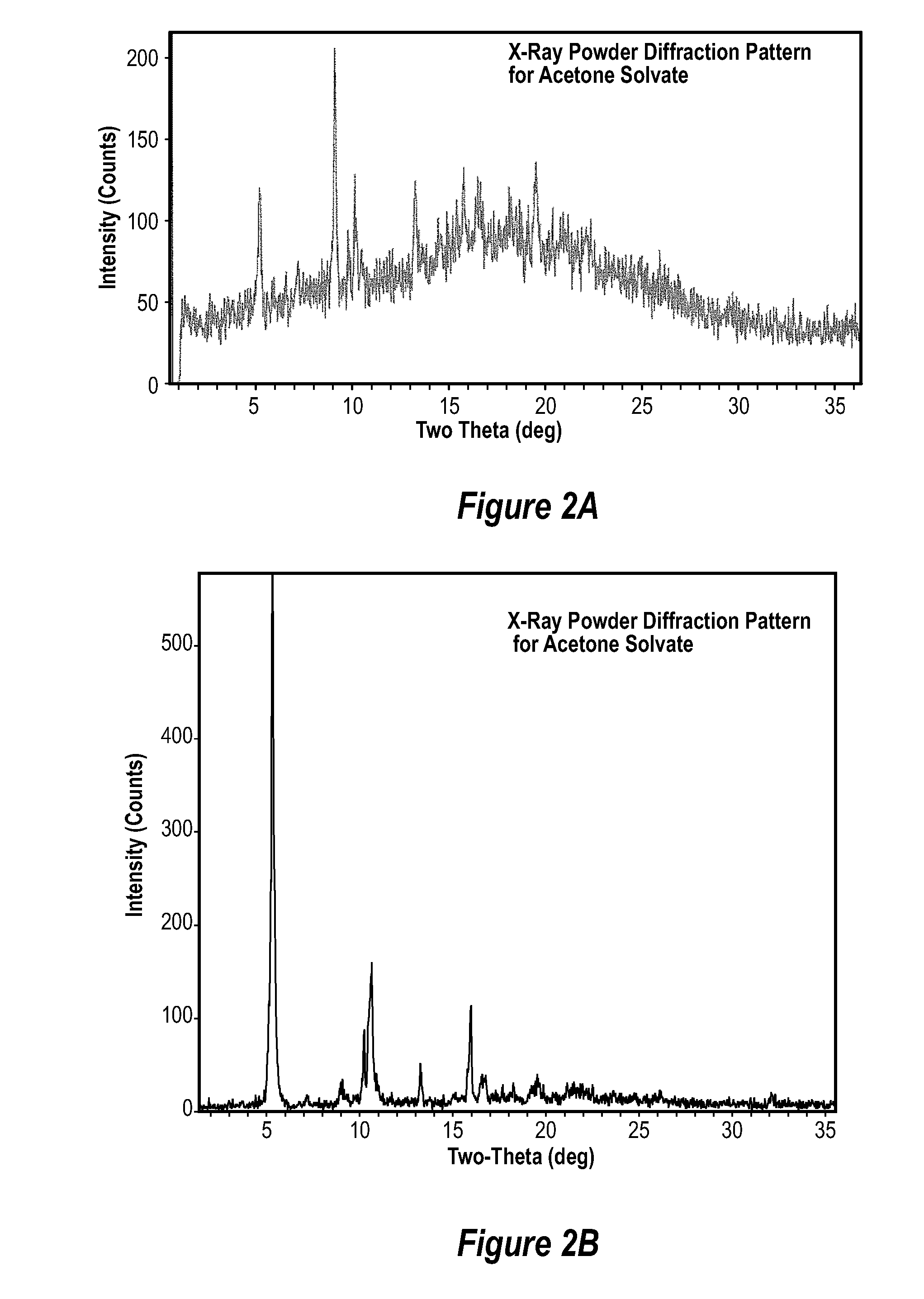Methods of manufacturing crystalline forms of rapamycin analogs
a technology of rapamycin and analogs, applied in the field of rapamycin analog crystalline form, can solve the problems of poor absorption of active compounds, limited control of crystallization based on structural understanding, and difficulty in achieving the effect of improving the stability of rapamycin, and reducing the risk of recurrence and recurrence of recurrence,
- Summary
- Abstract
- Description
- Claims
- Application Information
AI Technical Summary
Benefits of technology
Problems solved by technology
Method used
Image
Examples
example 1
[0216] The rapamycin analogs and processes of the present invention will be better understood in connection with the following synthetic schemes and methods of producing the rapamycin analogs and producing the crystallized forms of the rapamycin analogs, which illustrate the methods by which the crystalline rapamycin analogs of the present invention may be prepared.
[0217] The rapamycin analogs of this invention may be prepared by a variety of synthetic routes. A representative procedure is shown in FIG. 1. As shown in FIG. 1, conversion of the C-42 hydroxyl of rapamycin to a trifluoromethanesulfonate or fluorosulfonate leaving group provided Structure A. Displacement of the leaving group with tetrazole in the presence of a hindered, non-nucleophilic base, such as 2,6-lutidine, or, preferably, diisopropylethyl amine provided Formula 2 and Formula 3, which were separated and purified by flash column chromatography.
[0218] The foregoing may be better understood by reference to the fol...
example 1a
[0219] Rapamycin (7.5 g) was dissolved in DCM (30 g). 2,6-Lutidine (1.76 g) was added. The solution was cooled to −30 C in acetonitrile-dry ice bath, and triflic anhydride (2.89 g) was added slowly in 10 minutes. The reaction mixture was stirred for 20 minutes, and then assayed for the presence of rapamycin to determine consumption in the reaction. 1-H-tetrazole (1.44 g), followed by DIEA (5.29 g) was added. The reaction mixture was stirred for 6 hours at room temperature, and then directly loaded on a silica gel (270 g) column prepared in 1:1 THF:n-heptane (v / v). The crude reaction mixture was purified with 1:1 THF:n-heptane. The fractions containing product that elute later (N-2 isomer elutes first followed by N−1 isomer) were collected and concentrated. The concentrated solids were dissolved in minimum DCM and loaded on a silica gel column (135 g) packed in 70:30 n-heptane:acetone. The column was eluted with 70:30 n-heptane:acetone, and fractions containing pure product, as ident...
example 1b
[0221] A solution of Example 1A in isopropyl acetate (0.3 mL) was treated sequentially with diisopropylethylamine (87 uL, 0.5 mmol) and 1H-tetrazole (35 mg, 0.5 mmol), and thereafter stirred for 18 hours. This mixture was partitioned between water (10 mL) and ether (10 mL). The organics were washed with brine (10 mL) and dried (Na2SO4). Concentration of the organics provided a sticky yellow solid which was purified by chromatography on silica gel (3.5 g, 70-230 mesh) eluting with hexane (10 mL), hexane:ether (4:1 (10 mL), 3:1 (10 mL), 2:1 (10 mL), 1:1 (10 mL)), ether (30 mL), hexane:acetone (1:1 (30 mL)). One of the isomers was collected in the ether fractions (MS (ESI) m / e 966 (M)−; 42-(2-tetrazolyl)-rapamycin (less polar isomer) corresponding to Formula 3 of FIG. 1).
PUM
| Property | Measurement | Unit |
|---|---|---|
| temperature | aaaaa | aaaaa |
| constant temperature | aaaaa | aaaaa |
| temperature | aaaaa | aaaaa |
Abstract
Description
Claims
Application Information
 Login to View More
Login to View More - R&D
- Intellectual Property
- Life Sciences
- Materials
- Tech Scout
- Unparalleled Data Quality
- Higher Quality Content
- 60% Fewer Hallucinations
Browse by: Latest US Patents, China's latest patents, Technical Efficacy Thesaurus, Application Domain, Technology Topic, Popular Technical Reports.
© 2025 PatSnap. All rights reserved.Legal|Privacy policy|Modern Slavery Act Transparency Statement|Sitemap|About US| Contact US: help@patsnap.com



